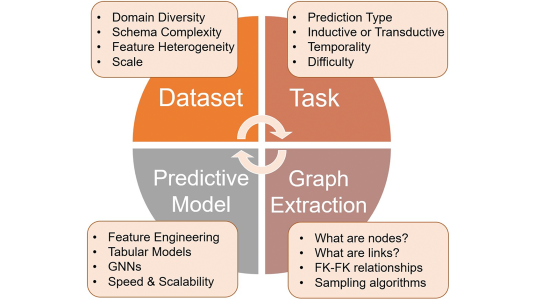About this CFP
Amazon Advertising helps grow businesses and brands of all sizes. Its scientists apply machine learning, optimization, causal modeling, and game theory at scale to enhance the shopper experience, help advertisers reach relevant audiences, and support brand building.

This mission includes (1) measuring the audience journey and helping brands move the needle on them, (2) achieving synergy among actions to reach the right audience at the right time, (3) leveraging online assets through machine learning, and (4) enabling advertisers.
We welcome proposals related to these themes and offer the following examples of research questions within each theme.
Theme 1: Funnel metrics and how marketing can move the needle
Examples of research questions include:
- What is an appropriate conceptual blueprint of how advertising products across the purchase funnel work together?
- How do advertisers evaluate currently upper- and mid-funnel efforts and how can these measures be improved?
- For jumpstarting growth (cold start) versus sustained growth, to what extent should advertisers focus on upper-funnel, mid-funnel or lower-funnel metrics? What does it take to grow at an unusually high rate?
- How do proposed funnel metrics react to marketing and convert into sales?
- How can single-item metrics (such as searches or detail page views) be weighted and optimized for the advertiser usefulness criteria of sales conversion, marketing responsiveness, stickiness and potential (see Hanssens et al. Marketing Science 2004)?
Theme 2: Modeling cross-channel effects of online advertising on consumer behaviors
Examples of research questions include:
- Understanding the effect of online advertising on the customer journey and particularly the upper funnel part of the customer journey.
- What is the reach of upper-funnel ads in online retail, and how does this compare to a brand’s offline, paid search, and social media advertising reach?
- What are the long-term effects of online advertising?
- Does online advertising show synergy with other marketing activity (such as social media, TV ads, out-of-home) and what are the implications for optimal marketing budget and allocation?
- How does this synergy change when the category is changing rapidly or the brand has a new product launch? How can this inspire agile marketing?
Theme 3: Deep learning applications for online assets
Examples of research questions include:
- Understanding and leveraging the interplay between online reviews, influencers, and online advertising.
- Leveraging machine learning to understand how online shoppers react to marketing stimuli.
- Leveraging machine learning to help advertisers reach audiences more effectively.
- Metrics and methods for designing, piloting, and evaluating systems that mitigate against adverse biases, including the use of human-machine collaboration and decision support.
- Deep learning applications to music technology.
- How does online retail experimentation help advertisers get the most out of online assets?
Theme 4: Helping advertisers take action based on online assets
Examples of research questions include:
- How can a model learn about specific advertisers’ objectives based on their online actions?
- How does giving advertisers specific recommendations on ad products increase their performance? How does this vary by advertiser?
- How does giving broader education to advertisers on ad products increase advertiser performance?
- Do advertisers prefer automated (self-serve) or guided interpretation of their performance? How does this vary by advertiser and type of analytics/insight?
Timeline
The submission period has closed and proposals are being reviewed.
Decision letters will be sent out September 2021.
Award details
Selected principal investigators (PIs) may receive the following:
- Unrestricted funds, no more than $80,000 USD on average
- AWS Promotional Credits, no more than $20,000 USD on average
- Training resources, including AWS tutorials and hands-on sessions with Amazon scientists and engineers
Awards are structured as one-year unrestricted gifts. The budget should include a list of expected costs specified in USD, and should not include administrative overhead costs. The final award amount will be determined by the awards panel.
Eligibility requirements
Please refer to the ARA Program rules on the FAQ page.
Proposal requirements
Proposals should be prepared according to the proposal template. In addition, to submit a proposal for this CFP, please also include the following information:
- Please list the open-source tools you plan to contribute to.
- Please list the AWS ML tools you plan to use and data you plan to obtain.
Selection criteria
ARA will make the funding decisions based on the potential impact to the research community, quality of the scientific content, and relevance for Amazon Advertising customers.
Expectations from recipients
To the extent deemed reasonable, Award recipients should acknowledge the support from ARA. Award recipients will inform ARA of publications, presentations, code and data releases, blogs/social media posts, and other speaking engagements referencing the results of the supported research or the Award. Award recipients are expected to provide updates and feedback to ARA via surveys or reports on the status of their research. Award recipients will have an opportunity to work with ARA on an informational statement about the awarded project that may be used to generate visibility for their institutions and ARA.





